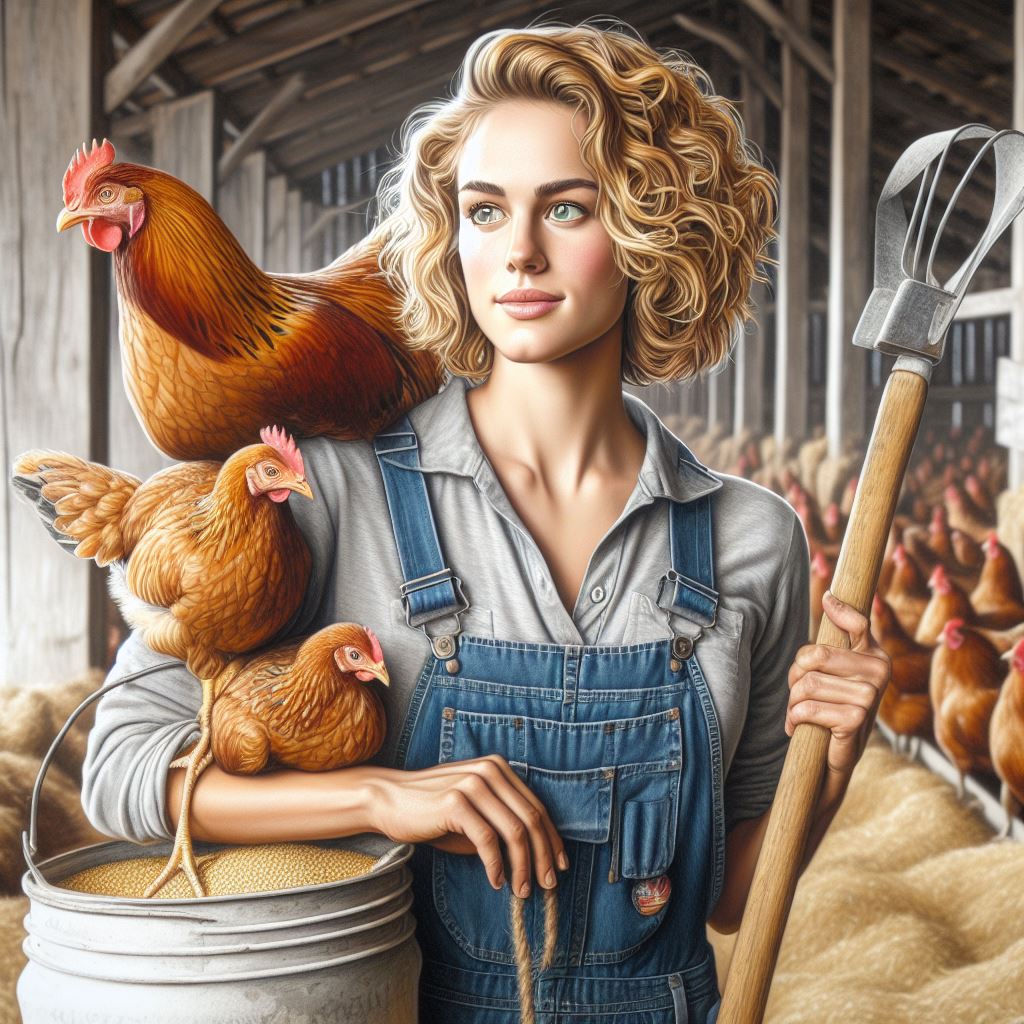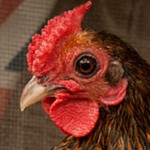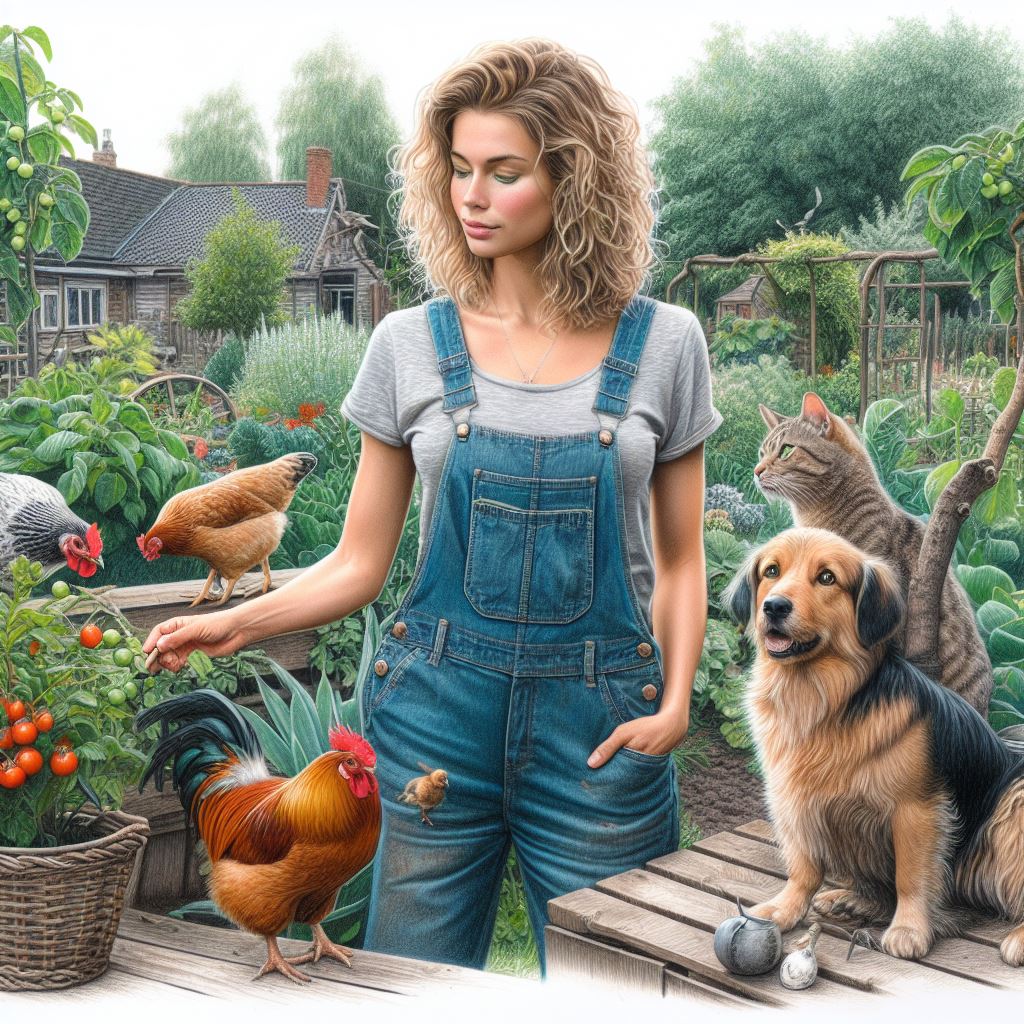Keeping Healthy Chickens
Chickens are one of the most rewarding and fun pets you can keep on your homestead. Not only do chickens provide delicious farm fresh eggs but they also make wonderful interactive, calming and huggable pets!
It doesn’t take much to keep a flock of chickens clucking, but there are some tools and tricks which are fundamental for keeping your flock of chickens well fed and loved.
How much space do chickens need?
Chickens naturally roost together at night and then prefer their own space while going about their business on the homestead or chicken run during daylight hours. Some chicken breeds deal well with confinement or small spaces while others require a wider range to forage and roam. If you have to keep them restricted to a chicken run, give each chicken enough space to forage in peace or have a place to go in case the head of the pecking order creates a ruckus. A good rule of thumb is about 3 sq. ft. of interior coop space for each chickens and at least double that in the chicken run or forage space. A flock of three hens are fine with a small or decent size coop, that you can find online, your local farm store or someone selling one at your local marketplace, so long as you let those cuties out to forage freely on a regular basis.
How do I keep their chicken coop clean?
Keeping the coop and chicken run clean and fresh is easy with some essential items. The best defense you have against droppings is quality chicken coop bedding material. Hemp Bedding is a GREAT option because it is undefeated in its absorption ability. It’s also an all natural pest repellent, organically grown and keeps coop odor down. A bale of hemp bedding will last 3 chickens approximately 6 months. Keep your flock healthy by removing their dropping from the bedding once every few days and replace the coop and run bedding once a week. There are other options for bedding materials as well such as, pine shavings where you can use the deep litter method in colder months and for the floor, construction sand, that can be scooped similar to kitty litter.
How much water do chickens drink?
Chickens are thirsty. A grown hen requires at least 17-18 ounces of fresh, cool water daily to maintain health. In the summer months, your chickens will need approximately 33 ounces per bird per day. Always make sure their water is clean and free of droppings from themselves and other birds or critters and also free of algae or dirt.
In the hot months add to their water some extras like frozen berries, ice cubes or frozen vegetables such as peas and carrots. Is your water container showing the gross green algae? Keep your chickens water supply algae free by adding a dash of apple cider vinegar in every refill!
Do chickens need to free range?
Your chickens may look very different from other wild birds, but they retain their adventurous spirit! A chicken’s instinct is to forage, and it’s important that these evolutionary natural behaviors are encouraged. No fields for free ranging? No problem! The humble backyard or a spacious chicken run provides the space they need to partake in a lovely game of peck the bugs. Your chickens, and their eggs, will benefit from the essential nutrients they get from the grass, weeds, grubs and small insects they find.
Space to wander also gives your hens a chance to exercise their bodies and minds and avoid boredom induced pecking order squabbles with their flock mates. If you find your little ladies are getting too friendly with your veggie patch or flower beds, a simple poultry fence setup will help protect your gardens from these tiny dinosaurs.
How do I keep my chickens safe from predators?
No mater where you homestead, predators threaten the livelihood of your backyard flock. Poultry and egg predators like foxes, owls, hawks, rats and even neighborhood pets are a concern for any chicken tender.
Your first line of defense is your coop. Make sure your chicken wire is tight and it is suggested to use 1/2″-1/4″ hardware cloth which is thick and hard to penetrate and that all your doors are secure. Next up, make sure your coop and run floor is impenetrable to burrowing predators with wire mesh fencing, 1/4″ hardware cloth or a firm foundation and keep those nocturnal lurkers in the shadows with motion detection sensor light.
What do chickens eat?
To be happy and healthy hens your backyard chickens require a balanced diet packed with the following essential nutrients.
- Protein – assists with growth, development, recovery and egg production
- Carbohydrates – provide energy for your active and curious flock
- Fats and oils – provide energy and help maintain skin and feather health
- Vitamin A – assists their immune system
- Vitamin B – assists in development and maintaining skin and feather health
- Vitamin D – assists in development and egg production
- Minerals – calcium and phosphorus promote strong egg shells and healthy bones
- Shell grit – shell grit assists their digestive tract in processing food and also provides minerals for optimum health
It’s not just grain and grit, your flock will love a healthy treat from time to time! Healthy treats are a great way to bond with your chickens, as these tiny dinosaurs are very food motivated.
We add to our layer crumble purchased at our local farm store:
- Split peas
- Black oil sunflower seeds
- Pumpkin seeds
- Whole oats
- Flax seed
- Red pepper flakes
- Cracked corn
- Dried Parsley
- Dried Oregano
- Dried Cilantro
It’s basically a scratch grain made by myself and the chickens seem to love it!
How many chickens should I keep? Chickens are like fine wine, you can’t just have one glass! Hens needs a flock to feel happy and healthy in body and mind. They are social animals and rely on the structure of their flock to keep them clucking. While two chickens are fine, more are better. Give your hen the best and biggest feathered family you can.
Do chickens need toys?
Chickens are not bird brains, these clever dinosaurs require enrichment activities and stimulating environments just like any other pet. A bored chicken is an unhealthy chicken which can lead to destructive behaviors like pecking, over preening (Pulling out one’s own feathers) and excessive pecking order squabbles. Keep your pet chickens intrigued and active with boredom busters such as a xylophone, hanging toys they can peck at or even a chicken swing.
In conclusion:
Deciding to become a chicken parent is the easy part. The hardest is choosing the best chickens for you! It can be eggstremely overwhelming to find the perfect fit for your family. From looks, to traits to egg-laying talents – where should you begin?
As chicken tenders, we want to do an eggcellent job when caring for our feathered friends. Unfortunately, many of us struggle to handle chicken health or behavior issues, especially in the first few years of having a flock. Do you research by finding the right breed for you, their characteristics and decide on whether you want them to free range or have a large run to scratch their legs in to.





Post Comment
You must be logged in to post a comment.